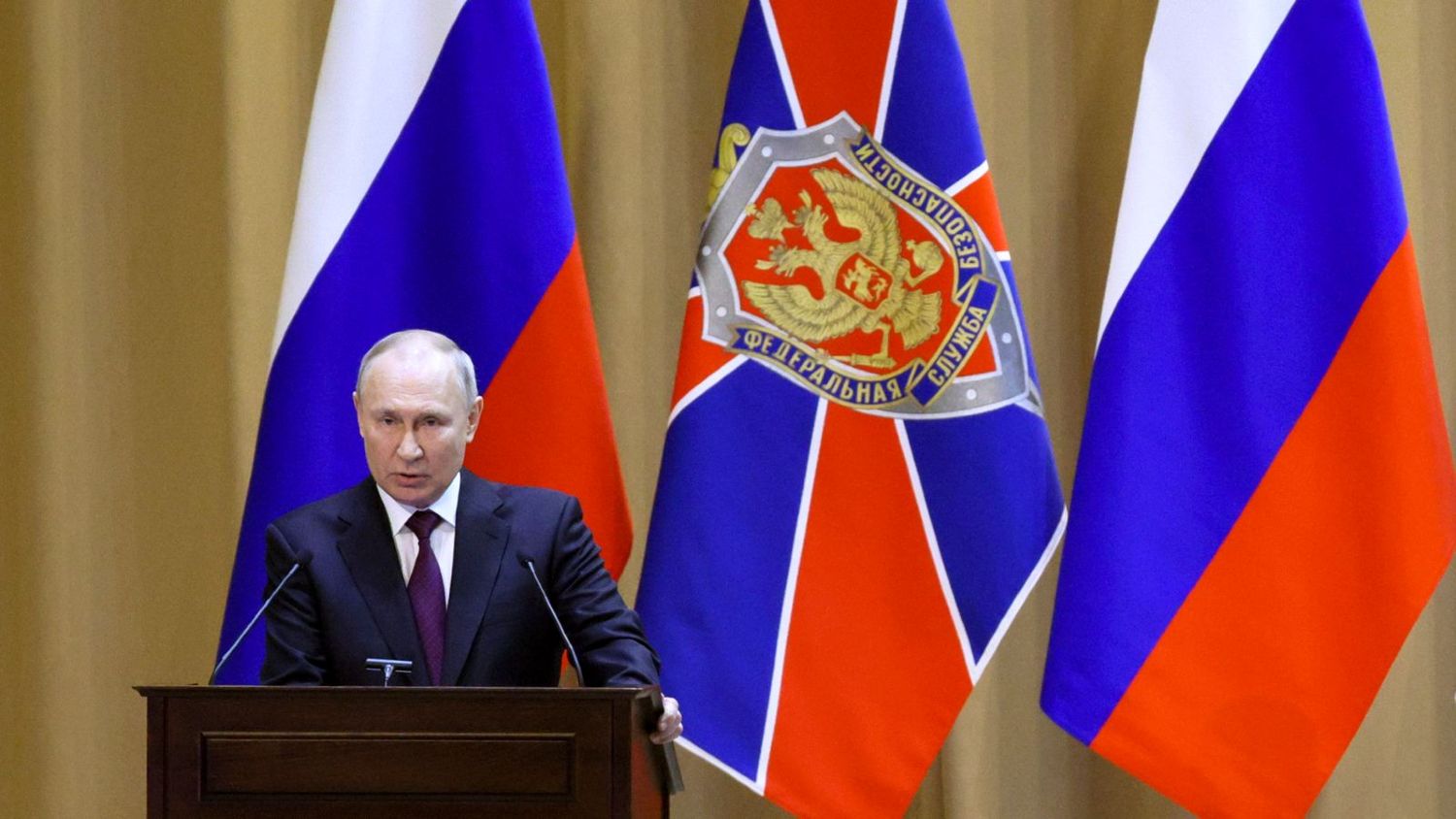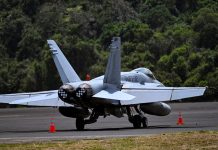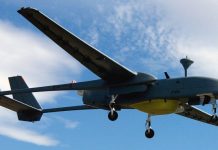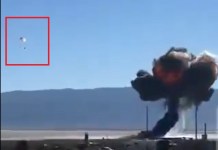By Ritu Sharma
Russia’s belligerence continues to wreak havoc in Ukraine. The spillover from the war is already threatening the peace in Moldova. The eastern European country is increasingly worried that once it prevails in Ukraine, Moscow will turn its rage towards Moldova.
Patriot Missiles: Like The Gulf War, Are America’s ‘Much Touted’ Defense Systems Again Faltering In Ukraine?
Moldova sees expedited accession to the European Union as the only guarantee against Russian aggression. The NATO allies, in turn, apprehensive of Russia’s nefarious designs against the small country, entrapped by Ukraine from three sides, have decided to shore up the East European country’s defense.
The country of 2.6 million sandwiched between Romania and Ukraine was part of the erstwhile Soviet Union. Moldova has had a tumultuous relationship with Russia for the past few decades.
It was awarded EU candidate status in June 2022, along with Ukraine and Georgia. It will start negotiations for formally joining the EU, which will take a few years.
The long-drawn invasion of neighboring Ukraine has made the country a tinder box. Moldova shares a long border of over 1200 km with Ukraine, and Russian long-range missiles have entered its air space on several occasions. The growing proximity of Moldova and the EU has not gone down well with Moscow.
Anticipating Russia’s designs against Moldova, the EU has decided to assistance to Moldova to ramp up its air surveillance, logistics, and cyber defense.
A statement issued by the European Council said: “The adopted assistance measure is worth €40 million over 36 months and will finance non-lethal equipment, supplies, and services to the units of the Armed Forces of the Republic of Moldova, including technical training, where requested. The approved equipment includes air surveillance, mobility and transportation, logistics, command and control, and cyber-defense equipment.”
This is the third assistance measure from the European Union. Earlier €40 million defense aid was given in June 2022, and one of €7 million before that in December 2021.
On June 1, forty-seven heads of state from the EU, Ukraine, Turkey, the UK, and other countries in the Balkans, congregated in Moldova for the European Political Community Summit that gave a message to the Kremlin from the EU and the pro-Western Moldovan government.
Moldova aspires to join the EU by the end of this decade. Ukrainian President Volodymyr Zelenskyy also attended the summit happening just 20 km from the Ukrainian border.
The Summit has been the Western country’s show of strength in support of Moldova. In light of the EPC Summit, the UK Royal Air Force RC-135W Rivet Joint spy plane also flew its maiden reconnaissance sortie inside Moldovan airspace, along with other surveillance aircraft patrolling the Romanian side of the border.
Online flight-tracking websites recorded the flight plans of the RC-135W departing from the United Kingdom, flying east over the English Channel, the Netherlands, Germany, and Poland before continuing over Slovakia, Hungary, and Romania before crossing over to Moldova.
In Moldova, it flew along the border. The Aircraft is one of the potent weapons to gather intelligence through electronic data. It gathers details about air defense radars and other signal emitters from the adversary’s territory. The Aircraft helps in generating “electronics orders of battle” (ORBAT) for future wars by documenting potential hostile capabilities.
The European countries fear Moldova being the next target of Russian aggression if it succeeds in Ukraine.
Apart from long-range missiles crossing over to its territory, Moldova also has a problem with Russian Army’s presence under its nose. The separatist region of Transnistria or Trans-Dniester – a narrow strip of land between the Dniester River and the Ukrainian border – broke away from Moldova in 1990.
The international community does not recognize its self-declared statehood, and the de-facto government, which remains in a stand-off with Moldova, is economically, politically, and militarily supported by Russia, which has an estimated 1,500 soldiers in Transnistria.
In veiled threats, Russia has warned Moldova against becoming another “anti-Russia.” The Kremlin has also been accusing Moldova of having plans to seize its breakaway region Transnistria.
Moldovan President Maia Sandu is pushing for quicker accession to the EU, which she sees as a guarantee against becoming Russia’s next target.
“We do believe that Russia will continue to be a big source of instability for the years to come, and we need to protect ourselves,” said Sandu on the sidelines of a Council of Europe summit in Iceland two weeks ago.
The European Bank for Reconstruction and Development (EBRD) pumped €525 million into the country’s economy last year. It is a record investment from the EBRD as the country is struggling from high inflation and the fallout of the war.
The bank has granted a loan of €300 million to Moldova to diversify its energy suppliers. Till two years ago, Moldova was completely dependent on Russia for its gas supplies. Today its import of natural gas and electricity from Russia is zero.
The EU has also granted €87 million in civilian aid and is now backing it up by opening a civilian mission in the capital of Moldova. Staffed by up to 50 officials, the mission will open on June 6 with a mandate for two years.
The European Union’s top diplomat Josep Borrell in a statement about the civilian mission, said that the under the Common Security and Defence Policy, the bloc will step up “support to Moldova [to] protect its security, territorial integrity and sovereignty” against Russia.

Officials confirmed that the mission will focus on “crisis management and hybrid threats, including cybersecurity, and countering foreign information manipulation and interference.”
On June 3, a large cache of weapons, ammunition, and gear was sent by Poland for the Moldovan police. After the revelations about the Russian attempt to destabilize the country, Poland sends arms in six transport planes – two Hercules and four CASAs. Poland’s Minister of Internal Affairs, Mariusz Kaminski, announced this on Twitter.
“Independent and sovereign Moldova, which resists attempts at internal destabilization, needs our support. That is why I decided to hand over a huge load to the Moldovan police,” the Minister wrote on Twitter.
On May 31, the first batch of equipment from the EU, provided by the European Peace Facility for the Moldovan military, arrived in Moldova. This €7 million aid package includes drones, laptops, explosive ordnance disposal equipment, ultrasound equipment, and more.
By the end of the year, as part of this assistance, Moldova will also receive ambulances, sapper robots, metal detectors, radars, vehicles, and medical equipment, Moldovan Defense Minister Anatolie Nosatîi said.
- Ritu Sharma has written on defense and foreign affairs for over a decade. She holds a Master’s Degree in Conflict Studies and Management of Peace from the University of Erfurt, Germany. Her areas of interest include Asia-Pacific, the South China Sea, and Aviation history.
- She can be reached at ritu.sharma (at) mail.com




